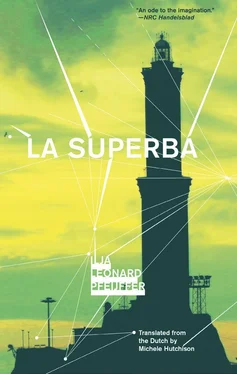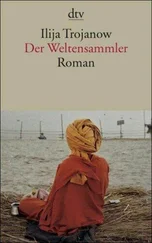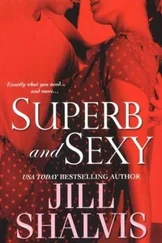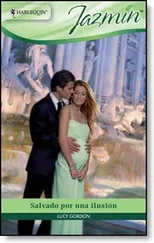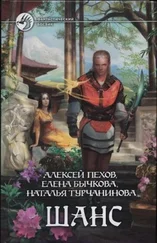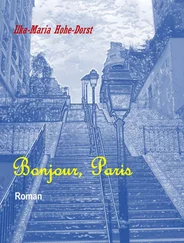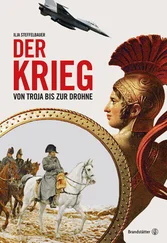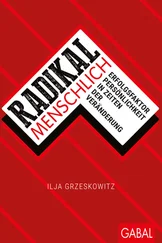We had a crisis meeting in a place Don would never find us: the Mandragola. Rebecca, the owner of Caffè Letterario was there, too, because as manageress of his favorite haunt, she was best placed to pass judgment on Don’s situation. The meeting was opened by our Scottish friend, who thanked us all for attending and emphasized that this meeting should never come to Don’s attention. We all nodded obediently. Then he explained in a nutshell what our problems came down to by describing Don’s skin color. He said it was “olive green.” At this, a lively discussion sprung up. The lobby for “moss green” seemed to gain the majority stake at first, but after a veto from the Eastern Bloc countries, a compromise was reached: “puke green.” The next item on the agenda was his physical health. A small minority described him as “skinny.” But they were overruled by a majority who considered him “emaciated.” The debate finally moved on to his many injuries and their failure to heal properly and the cause of his strangely swollen stomach. Our Scottish chairman suggested a compromise: that Don, despite the differing interpretations the various parties might have, was looking unhealthier by the day. This motion was unanimously approved.
At that moment, Rebecca took the floor. “I love Don,” she said. “He’s a living legend. I don’t mind if he drinks himself to death on my terrace. He’s an adult. It’s his choice. And in some ways, I feel honored, although perhaps that’s the wrong choice of words. I mean—”
We nodded understandingly. We knew exactly what she meant.
“What I mean is this. On an average evening, he easily drinks a whole bottle. Gin. A liter. That’s forty euros, retail price. And he can’t even pay the cost price. Sorry to be so prosaic. Don is a poem. But I still have to cash up at the end of the night.”
There was a silence. And suddenly all of Don’s friends had places they needed to be. I stayed behind with Rebecca. “The most important thing,” I said, “is that Don never finds out that we met up to try and help him. He has his pride. It’s the only thing he has left. He would never forgive us.”
Rebecca didn’t say anything.
7.
“After Malaysia, I was posted to Japan and Korea. Japan was a doddle. It meant drinking G&Ts with the Japanese. I’ll give you two guesses who won. And in Korea I had a kind of admin job. For a month. And after that I was at a secret British naval base in Saudi Arabia for a while. It was so secret, even in the upper echelons of the British Army there weren’t many people who knew of its existence. But the Israelis knew about it. And they demonstrated that by flying over on a weekly basis and bombarding the runways. Symbolically. With flowers. As a warning. To make it clear that they were keeping an eye on us and that nothing would stop them if they did decide to bomb us because we weren’t keeping our heads down. Sometimes they’d come a day earlier or later. And once the Saudi pilots had just gone out to train when they came along. All the pilots were princes. Terribly spoiled. And terrified of the Israelis. And two of them were so terrified they used their ejector seats and let their expensive fighter planes crash in the desert. We laughed a lot about that.
“But Malaysia was tough. That was real. We were given a jungle survival training course in Kuala Lumpur. What was edible and not. How to make drinking water from your own piss. There were these plants with huge leaves. Really. This big. We called them elephant’s ears. They’re poisonous. If you eat them raw, you die. But if you soak them for a night in your own excrement, they become extremely nutritious. And in case of emergency, I always carried a bottle of gin in my rucksack.
“We were hunting CTs. Communist terrorists. These days I’d call them freedom fighters. Pitched our tents behind their lines. The stress. The stress was the worst thing. Four men keeping guard and after four hours being relieved by the other four. Taking turns to sleep in four-hour shifts. And never shooting. If only that was true. That would have made it a little more bearable. I have my doubts those CTs existed. I never saw one.
“There were Frenchmen, though. On our rugby pitch. They came from Vietnam. Their base was surrounded and they were evacuated by helicopter. To our rugby pitch in Malaysia. They’d had a lot thrown at them, you could see that. Wounded. Torn uniforms. Lice, leeches, gunshot wounds, and no gin and tonic for weeks. So, us Brits, we started by giving those Frenchmen a good wash. A great heap of tattered uniforms on the rugby field, gasoline, and a lighter. And there they were, stark naked in a row in front of the showers. The officers, too. Their beer bellies gave them away.”
He ordered ice and a lacrima .
“We called them the FBBs. Fat beer bellies.”
8.
“In total, I spent eight years in the army. Eight fucking years of my life. It was a complete waste of time, all things considered. I learned nothing but skills I hoped I would never ever need — like shooting freedom fighters, cooking elephant’s ears in my own excrement, and catching shrapnel in my stomach. It was finally time to do something useful with my life. Useful mainly in the sense of easier to combine with my thirst. I wanted to sit in bars like a civilized human being, not in submerged manholes in the jungle. I could put my talents to better use. And my illustrious career proved me right.
“I decided to study. English literature at Cambridge. But there was one problem. I’d never finished school. I didn’t have any A-levels. And you need A-levels to get in, don’t you? I mean, that wasn’t enough, you had to submit essays, too, take entrance exams, that kind of thing; but without A-levels, you didn’t even get the chance to try. So I had to come up with a plan.
“I had a mate in the army, a simple lad from Birmingham. He couldn’t write his own name, but he was brilliant at drawing. He made clever cartoons of our officers on the backs of bread packets or whatever he could lay his hands on. It was a wonder it never got him into trouble. They were so cruel, so accurate, so good. I thought: that’s the man I need.
“I can’t remember his name. Peter. Something like that. Or Brian. But that doesn’t matter. He was brilliant at drawing. Or did I already say that? And he owed me a favor. Ha-ha! It still makes me laugh to think of it. That was in Japan. No! Korea! It was in Korea. I remember it well. He had a lady visitor — that was our euphemism at the time. A scarlet lady. They popped up fairly often on Her Majesty’s Royal Army base. But of course it was strictly prohibited, you’ll understand. To pluck the fruits. To consume, for a modest fee, the ripe fruits that had fallen on the ground in front of your very feet. We were British, weren’t we? Ha-ha! And this Richard or Mark or whatever his name was had found one who screamed like a stuck pig. I still remember it well. I was standing in the corridor keeping a look out. And then one of those five star generals came along ‘to inspect the troops,’ as it were. Can you imagine? No, listen. That Korean floozy lying there screaming like all the karaoke bars in Taipei put together and the general coming down the corridor. Do you know what I did? I faked a coughing fit. I coughed her out. I coughed a hysterical little Korean whore all the way home. The general was worried. ‘Asthma, General. I suffer from terrible asthma. And being in the tropics doesn’t make it any better. The medical examiner didn’t want to pass me when I signed up. I got down on my knees and begged him to show some mercy. My greatest desire was to fight for England, the queen, and the free western democracy.’ The general gave me a pat on the shoulder and walked on.
“So that John or Edwin or whatever he was called owed me a favor. He was a simple lad. But what you need to know is that he was really damn good at drawing. Or did I say that already? So I gave him a copy of my brother’s exam certificate. Don’t ask me how I managed that. It’s a long story. And Michael or Steve or whatever he was called copied it. He faked my exam certificate. I could apply for university. My essays on James Joyce and the English metaphysical poets went down brilliantly. That’s how I ended up at Cambridge.”
Читать дальше
